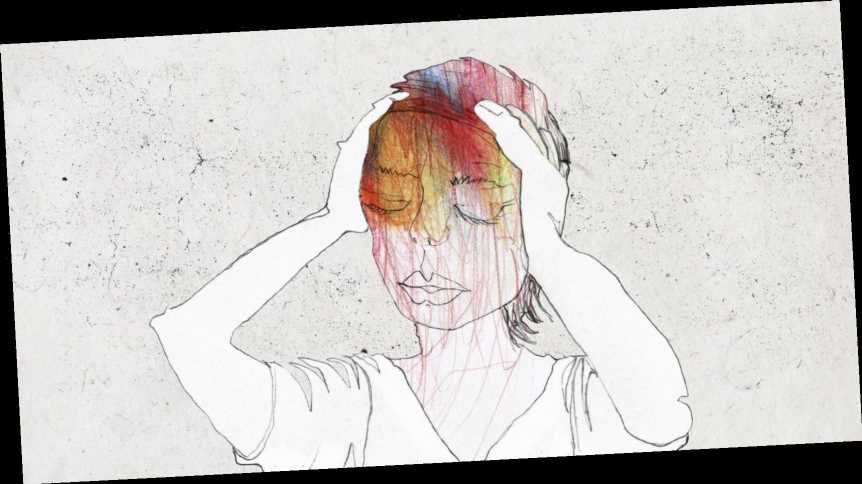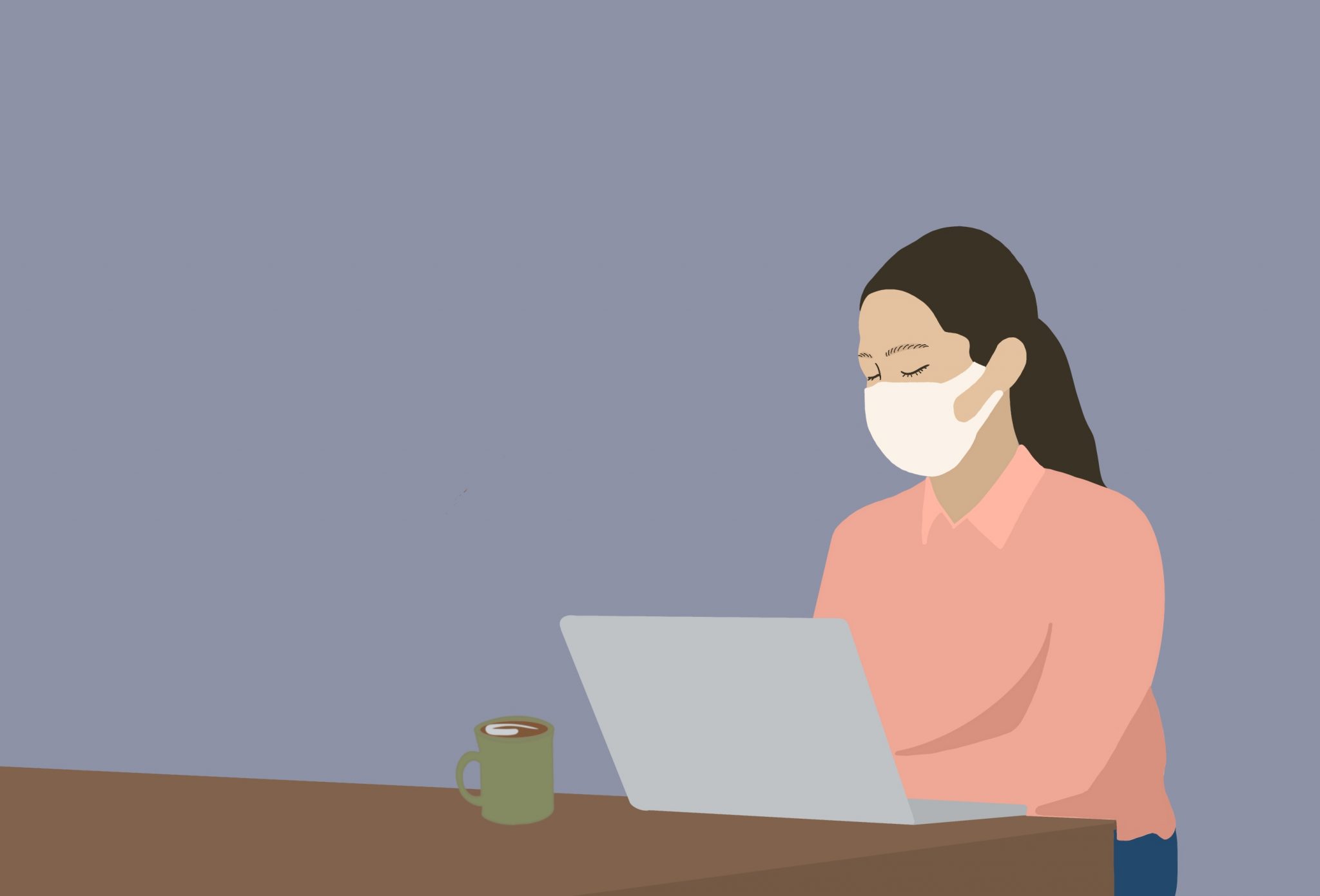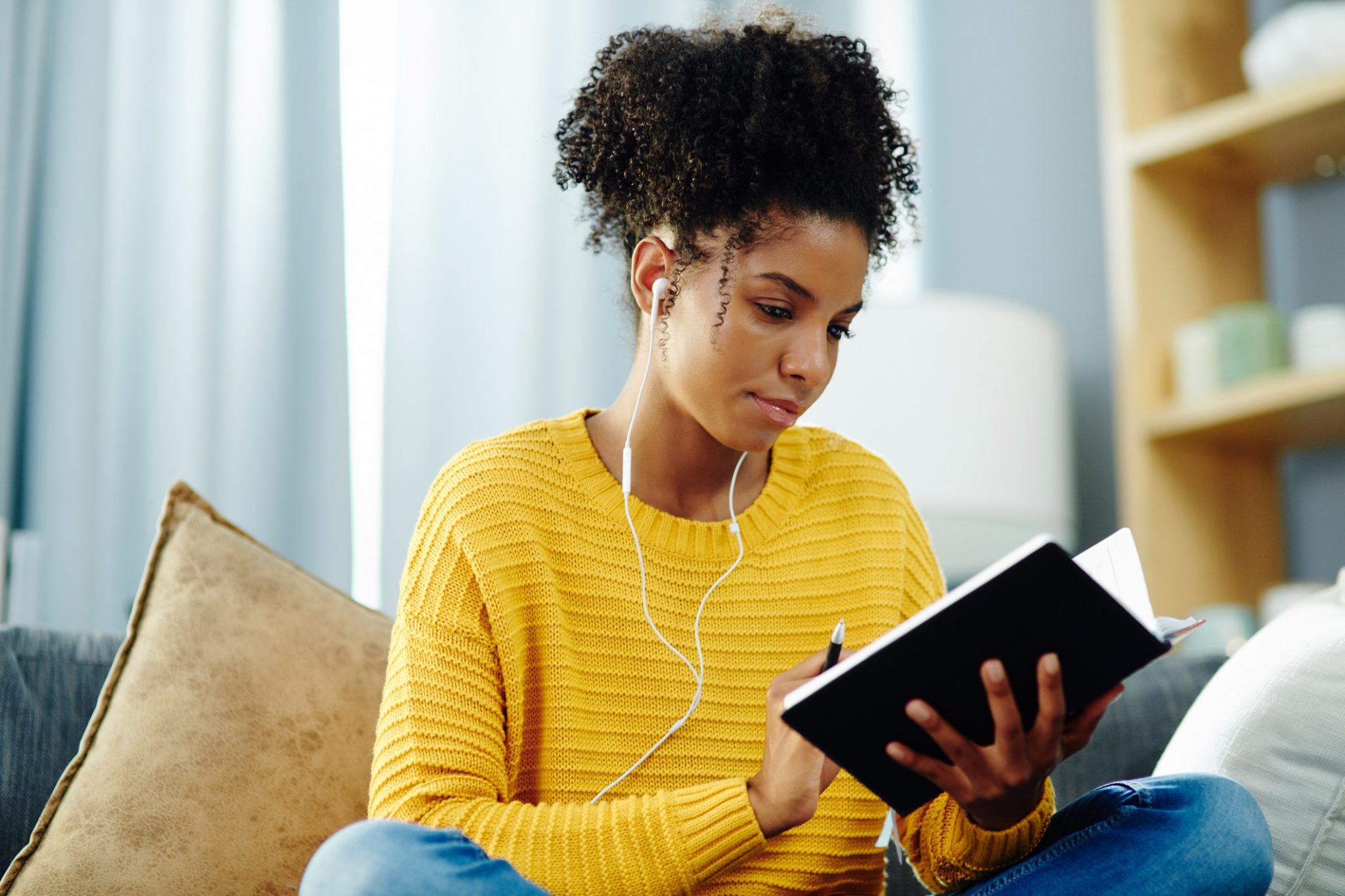Feeling jittery about the return to pubs and foreign holidays? You’re not alone. As lockdown eases, here’s how to navigate the uncertainty by making choices that feel true to you.
The lockdown period of coronavirus was stressful, but at least it came with clearly defined boundaries. We all knew what we could and couldn’t do. The rules were obvious (at least for most people).
Now with the focus shifting to personal responsibility to protect ourselves, there’s more uncertainty hanging in the air. Ironically, the freedom to visit pubs, hairdressers or travel abroad brings with it a fresh kind of anxiety.
Because who sets the limits when they’re left wide open to interpretation?
Can we trust the government guidelines, even as communities around the world struggle with new outbreaks of coronavirus?
Who knows better right now – the woman who seizes the moment and jets off to Ibiza, or the one who bides her time and stays close to home?
Do we go with our gut, or go with the flow?
With so many questions, the ambiguity we face over lockdown easing in the next few weeks and months is creating a new stress all of its own.
It’s a worry that sits somewhere uncomfortably between FOMO (fear of missing out, now the world is opening up) and not doing the wrong thing after months of playing it safe.
The circle of “what ifs” looms larger than it ever did under lockdown, because now it’s all on us.
Not only that, but change itself – even a change in the “right” direction – can feel unnerving, whether that’s returning to your office or dining out for the first time in four months.
“For many, a change in circumstances represents threat. It can provoke us to create imagined realities that trigger fear and anxiety,” says mindset coach and leadership consultant Alister Gray, the founder of Mindful Talent. “The key to avoiding these feelings is to readapt to life at your own pace, by making choices that feel true to you.”
Here’s how to do exactly that, using four steps outlined by Gray to see you through this awkward post-lockdown transition.
1. Plan and prepare – what would make this easy?
Start by asking yourself, “What would re-adapting look like if it was easy?”
It’s a simple yet profound question, and answering it will help craft your coping strategy when it comes to anything from seeing friends to using public transport.
Write down everything that comes up. Consider who can support you and your loved ones during this time: who do you really need to see, and who can wait for a later point?
Reflect closely on anything that feels difficult, and mull over how you might make it easier. For instance, if you don’t want to return to the office full-time, can you negotiate a number of days from home per week? If you’ve been caring for someone vulnerable but now need to step back, who or what can help fill the gap?
List the activities that you feel totally at home doing, versus those that – for whatever reason – make you feel uncertain. Take it slow with the latter: there is no need to rush back to “normality” just because everyone else appears to be doing so.
2. Set healthy boundaries
Get clear on what you want to do versus what you feel you should do.
Take a moment to breathe and reflect on what is important to you. Again, writing things down is useful here. Jot down the things that you truly want to do; the things that feel natural and that you value the most. Then write a separate list of what you feel you should do, or what you feel pressured to do.
Once you have the two lists, you can reflect on the “should” list and ask yourself: “Why do I feel pressure to do this?” and, “How would I feel if I was to let this go?”
3. Give yourself permission to say no
You may have felt uneasy just reading this title: if so, then great: it’s a sign that this is an area for you to work on.
Don’t let a sense of FOMO drive your decisions and behaviours. It’s good to be aware of the collective unconscious habits of society that make you feel that you have to say yes to invitations or suggestions.
Instead, practise saying “no”. Having identified what’s important to you in the above two steps, you now have a filter in place to politely decline invitations or suggestions that feel out of alignment with you.
It’s OK to say no: in fact, it can feel empowering because you’re honouring how you really feel. Give it a go and trust that over time it becomes easier.
4. Trust yourself and your intuition
When it comes down to it, most of the time you know in your gut what you want to do. But, for some reason or another, you’re afraid to follow through on that instinct.
Get used to listening more to your inner voice, and being in tune with what it says. Trust yourself to do what is right for you in any given scenario.
Over the past four months, many of us have had more time to think, reflect and consider what life means to us and what’s important (or what’s not).
Now is the moment to practise applying all of that wisdom. Listen to your intuition and trust your gut to live a life after lockdown that you truly identify with.
Images: Getty
Source: Read Full Article




